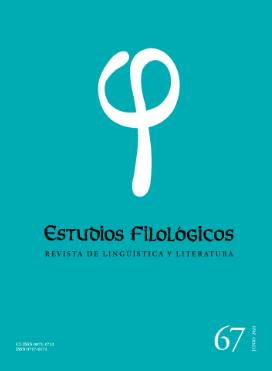The landscapes of the reminiscent self. Andrés Neuman, Eduardo Mendoza y Muñoz Molina
Main Article Content
Abstract
This article aims to study the literary relationship between time and space as a narrative construction of discursive conscience. To that end, three novels have been analysed: Fractura by Andrés Neuman (2018), El rey recibe by Eduardo Mendoza, and Ventanas de Manhattan, by Muñoz Molina (2004). Embracing the concept of figuration, two main textual axis have been established, namely, the alienation of foreign view, and the fabulation of memory. Through those focuses the power of spatial resemantization is explained based on two essential dialectics (inside/out and presence/absence) that cross these three oeuvres. In doing so, the semiotic approach to spatiality has evidence how the formalist deautomatization and dialogism, together with postmodern reification have a meaningful impact on the structural and hermeneutics characteristics that create the personal discourses of three reminiscent selves.

